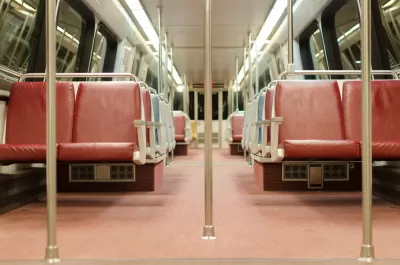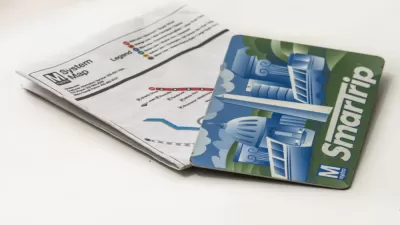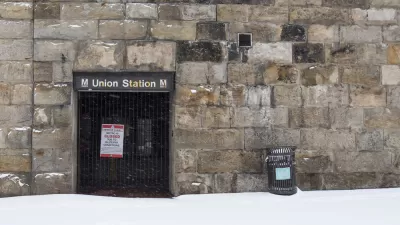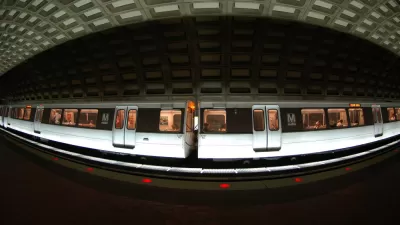At transit agencies like D.C, Metro, bad ridership projections beget bad fare scheduling which begets bad budgets. And so on.

The Washington Metropolitan Transit Authority's well documented challenges with maintenance and ridership are further complicated by inaccuracies in the region’s travel forecasts, according to an article by Martin Di Caro.
Bad projections, according to Di Caro, breed "unreliable budgeting and eroding confidence that Metro’s leaders have the best data possible to manage the current ridership losses."
Metro recently announced a fare increase, but it "remains unclear where Metro’s ridership and fare revenue need to be to avoid annual debates over fare hikes and service cuts," according to Di Caro. A report by Metro's inspector general [pdf] found "that the transit authority’s key departments recognize the old way of predicting commuter behavior and setting fare levels no longer works."
Yet, D.C. Metro is not the only Metro in the country struggling to build better predictive modeling. "Metro reached out to other major systems via survey, confirming that they 'face similar constraints in making changes to fare structures, such as economic factors, available funding, political opposition, and public board reaction,'" according to Di Caro.
FULL STORY: Why Metro Can’t Predict How Many People Will Ride The Trains

Maui's Vacation Rental Debate Turns Ugly
Verbal attacks, misinformation campaigns and fistfights plague a high-stakes debate to convert thousands of vacation rentals into long-term housing.

Planetizen Federal Action Tracker
A weekly monitor of how Trump’s orders and actions are impacting planners and planning in America.

Chicago’s Ghost Rails
Just beneath the surface of the modern city lie the remnants of its expansive early 20th-century streetcar system.

Bend, Oregon Zoning Reforms Prioritize Small-Scale Housing
The city altered its zoning code to allow multi-family housing and eliminated parking mandates citywide.

Amtrak Cutting Jobs, Funding to High-Speed Rail
The agency plans to cut 10 percent of its workforce and has confirmed it will not fund new high-speed rail projects.

LA Denies Basic Services to Unhoused Residents
The city has repeatedly failed to respond to requests for trash pickup at encampment sites, and eliminated a program that provided mobile showers and toilets.
Urban Design for Planners 1: Software Tools
This six-course series explores essential urban design concepts using open source software and equips planners with the tools they need to participate fully in the urban design process.
Planning for Universal Design
Learn the tools for implementing Universal Design in planning regulations.
planning NEXT
Appalachian Highlands Housing Partners
Mpact (founded as Rail~Volution)
City of Camden Redevelopment Agency
City of Astoria
City of Portland
City of Laramie





























